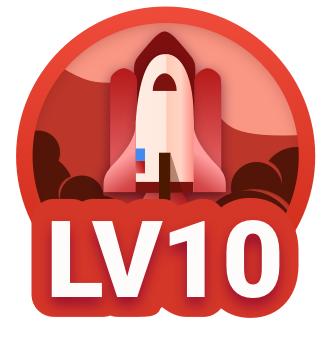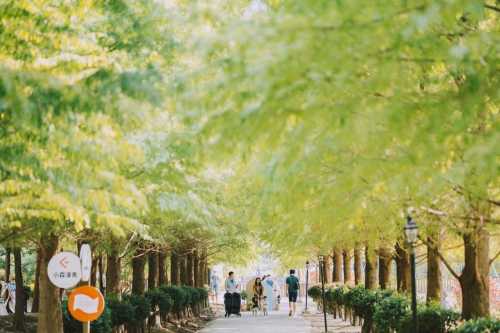Popular Trip Moments
Hsinchu Cherry Blossoms: Encounter a Romantic Spring Wonderland | Embrace the Majestic Trees Along the Smangus Sacred Trees Trail | Cherry Blossom Snowfall! Discover the Hidden Flower Corridor in Hsinchu | Three-Color Floral Scenery in One Visit at Wanli Forest Garden | 🌸** A secret place for cherry blossom viewing hidden in the mountains**🌸 | Cherry Blossom Viewing Area Near Qingquan Catholic Church | Green World Ecological Farm in Beipu | Smangus (God's Tribe) | Bailan Tribe (Wufeng Township) | 🌸** Beautiful trail with natural mountain scenery and romantic cherry blossoms**🌸 | 🌸** Cherry Blossom Trail on the Left Bank of Touqian River Bridge in Hsinchu**🌸 | 🌸** Secret Sakura Land in Kansai**🌸 | Found by me! Taiwan limited pink romance💖 | Youluoxi Forest Garden: A dream of cherry blossoms in full bloom | Experience staying at Leofoo Resort where you can see giraffes from your window as soon as you wake up. | [Hsinchu/Zhubei] Xinqiao BBQ House 🐂|Must-eat BBQ in Zhubei! | Explore the Divine Tribe and Enjoy Cherry Blossoms in Smangus | A Tour of Beipu Old Street and the Irresistible Hakka Cuisine | Must-visit* Must-see cherry blossom spots in Hsinchu**Simakus** | Caibo Cherry Blossom Orchard - Hsinchu's most beautiful cherry blossom garden | Zhubei's quality coffee shop is upgraded again. Quick notes for dessert lovers | Visit Yungu Temple | The Pink Storm in the Taigang Tribe of Jianshi is Absolutely Stunning | Visit Feifeng Mountain in Hsinchu County | Taoyuan Travel Guide | Cherry Blossoms Amid the Clouds, Springtime in Smangus | Cherry Blossom Viewing in Simakus | Simakus, a place with beautiful scenery that makes people full of strength! | A good place for lazy camping ~ Venice Hot Springs Campground | A Secret Place Around Shimen Reservoir--Shuangshi Vertical Walk
Popular Travel Types
Recommended Attractions at Popular Destinations
Bangkok attraction near me | Manila attraction near me | Tokyo attraction near me | Taipei attraction near me | Hong Kong attraction near me | Seoul attraction near me | Kuala Lumpur attraction near me | Los Angeles attraction near me | Shanghai attraction near me | New York attraction near me | Shenzhen attraction near me | Osaka attraction near me | Singapore attraction near me | London attraction near me | Guangzhou attraction near me | San Francisco attraction near me | Beijing attraction near me | Macau attraction near me | Bali attraction near me | Jakarta attraction near me | Paris attraction near me | Ho Chi Minh City attraction near me | Istanbul attraction near me | Phuket attraction near me | Chicago attraction near me | Seattle attraction near me | Toronto attraction near me | Orlando attraction near me | Cebu attraction near me | Chiang Mai attraction near me
Popular Attractions
Niu Shou Shan | Shandong Museum | Singapore Zoo | Bird Paradise | Jokhang Temple | Wan Gu Building | Chengdu Du Fu Thatched Cottage Museum | Zoo Negara Malaysia | Chengdu Research Base of Giant Panda Breeding | Gold Buddha Mountain | 3D Trick Art Gallery | Shuzhuang Garden | Carlton Gardens | Dujiangyan Scenic Spot | Ngātoroirangi Mine Bay Māori Rock Carvings | Dubai Aquarium & Underwater Zoo | Jinli Street | 17 Mile Dr | Black Cat Cruises | Pantai Trombol | Rumah Bambu | Shiv Mandir | Masjid Al Ikhlas | Tugu Pematang Benteng | Edirne Lisesi Müzesi | Barahi Temple, Ramjakot | Sungai Nibong Gospel Hall (சுங்கை நிபோங் நற்செய்தி மண்டபம்/Dewan Injili Sungai Nibong) | چلڈرن پارک وڈالہ سندھواں | Kokubu Park | Zhongshan Mountain National Park
Popular Restaurants in Hsinchu County
易鼎活蝦餐廳 (竹北店) | 藝奇 - 竹北光明店 | 盛宴自助餐廳 - 新竹喜來登大飯店 | 老兄牛肉麵 | 1010湘(光明一路店) | 這一鍋皇室秘藏鍋物(光明殿) | 十一街麵食館 | 風城之月懷舊餐廳 | Merry Cafe | 新橋燒肉屋(竹北店) | Beipulaojiebantiao | 三十九號北埔擂茶 | 關西臭豆腐 | Fresh Corner | 陶板屋(竹北光明店) | Duanchunzhenniuroumian | 黃金海岸的活蝦之家餐廳 | 品田牧場(竹北縣政店) | 數位天空 | 老盧小吃 | 乾杯燒肉居酒屋(新竹光明店) | 生生Kapi | 包SIR牛肉麵餃子館 | YUE LIANG XIAN SHENG GA FEI GUAN | JE German Cuisine | Guanxihongdoubing | Taiwan Beef Noodles | Yumsem宴先韓式紫菜包飯 | 長春 1930 café (原長春醫院 ) | 活力女孩
Popular Ranked Lists
Popular Best Things to Do in Laiyuan | Popular Luxury Hotels Near Takeo | Popular Best Things to Do in Ruoqiang | Popular Premium Hotels in Pipa | Popular Best Things to Do in Pingyang | Popular Premium Hotels in Mobile County | Top 9 Local Restaurants in Lushan Global Geopark | Top 10 Local Restaurants in Sao Paulo | Top 15 Local Restaurants in Narita | Popular Best Things to Do in Jianchang | Top 10 Local Restaurants in Minsk | Top 3 Best Things to Do in Genting Highlands | Popular Best Things to Do in Lianzhou | Top 15 Best Things to Do in Gold Coast | Top 20 Local Restaurants in Lhasa | Top 10 Local Restaurants in Izmir | Popular Best Things to Do in Tiantai | Popular Premium Hotels in Thap Put | Top 10 Local Restaurants in Phi Phi Islands | Top 10 Local Restaurants in Guanghan | Popular Premium Hotels in Saikai | Popular Luxury Hotels Near En Gev | Popular Best Things to Do in Taipei | Popular Premium Hotels in Korcula | Popular Luxury Hotels Near Fahaheel | Popular Best Things to Do in Liquan | Top 5 Best Things to Do in Hannover | Popular Premium Hotels in Torquay | Popular Best Things to Do in Hanggin Banner | Top 10 Local Restaurants in Newcastle
Payment Methods
Our Partners
Copyright © 2025 Trip.com Travel Singapore Pte. Ltd. All rights reserved
Site Operator: Trip.com Travel Singapore Pte. Ltd.
Site Operator: Trip.com Travel Singapore Pte. Ltd.































